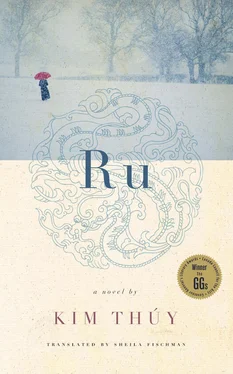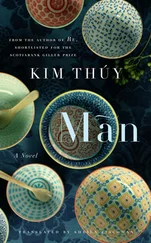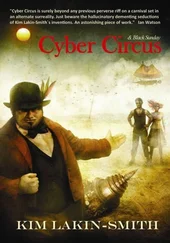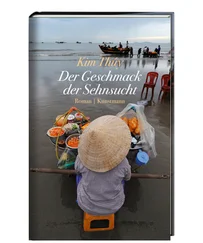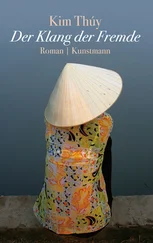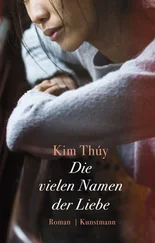The police were ordered to allow all boats carrying Vietnamese of Chinese background to leave “in secret.” The Chinese were capitalists, hence anti-Communist, because of their ethnic background and their accent. But the inspectors were allowed to search them, to strip them of everything they owned till the very last minute, to the point of humiliation. My family and I became Chinese. We called on the genes of my ancestors so that we could leave with the tacit consent of the police.
My maternal great-grandfather was Chinese. He arrived in Vietnam by chance at the age of eighteen, married a Vietnamese woman and had eight children. Four of them chose to be Vietnamese, the other four Chinese. The four Vietnamese, including my grandfather, became politicians and scientists. The four Chinese prospered in the rice business. Even though my grandfather became a prefect, he could not persuade his four Chinese siblings to send their children to a Vietnamese school. And the Vietnamese clan didn’t speak a word of Szechuanese. The family was divided in two, as was the country: in the South, pro-American, in the North, Communist.
My uncle Chung, my mother’s big brother, was the bridge between the two political camps. In fact, his name means together , but I call him Uncle Two because it is a South Vietnamese tradition to replace the names of brothers and sisters with their birth order, beginning with the number two.
Uncle Two, the eldest son in the family, was a member of parliament and leader of the opposition. He belonged to a political party made up of young intellectuals who situated themselves in a third camp, daring to stand between the two lines of fire. The pro-American government had permitted the birth of that party to appease the anger and turmoil of the young idealists. My uncle had achieved top billing in the mind of the public. On one hand, his political program appealed to the members of his team. On the other, thanks to his movie-star good looks, to his constituents he represented the hope for a semblance of democracy. A charismatic, happy-go-lucky young man, he had taken down the frontier between the Chinese and Vietnamese families. He was someone who could discuss with a cabinet minister the impact of a paper shortage on freedom of the press while at the same time wrapping his arm around the waist of the man’s wife and leading her in a waltz — even though the Vietnamese didn’t waltz.
All through my childhood, I had a secret wish: to be Uncle Two’s daughter. Sao Mai was his princess, even if he sometimes forgot her existence for days at a time. Sao Mai was revered by her parents like a prima donna. Uncle Two had many parties at their house. And often, in the middle of the evening, he would stop all conversation to seat his daughter on the piano bench and introduce the little melody she was going to play. For him, during the two short minutes of “Au clair de la lune,” nothing existed but the chubby-fingered doll tinkling away with the greatest of ease before an audience of adults. Every time, I sat under the staircase to memorize my uncle’s kiss on Sao Mai’s nose while his guests applauded. He gave her only two minutes of attention now and then, but it was enough to give my cousin an inner strength that I lacked. It didn’t matter if her stomach was empty or full, Sao Mai never hesitated to boss around her big brothers and me.
My cousin Sao Mai and I were brought up together. Either I was at her house or she was at mine. Sometimes at her place there wasn’t even a grain of rice. When her parents were away, the maids disappeared too — often with the jar of rice. And her parents were often away. One day her big brother fed us some stale rice stuck to the bottom of a pan. He’d added a little oil and some green onion to make it into a meal. Five of us nibbled on that dried-up cake of rice. Other days we were buried under mountains of mangoes, longans, lychees, Lyon sausage, cream puffs.
My cousin’s parents would base their choice of what to buy on the colour of a fruit or the perfume of a spice or simply according to the whim of the moment. The food they brought home was always surrounded by a festive aura, a sense of decadence and thrill. They didn’t fret over the empty rice jar in the kitchen or the poems we were supposed to learn by heart. They just wanted us to stuff ourselves on mangoes, to bite into fruit and make the juice spurt, while spinning around and around like tops to the music of the Doors, Sylvie Vartan, Michel Sardou, the Beatles or Cat Stevens.
At my house, meals were always on time, the maids in attendance, homework supervised. Unlike Sao Mai’s parents, my mother gave us only two mangoes to be shared by my two brothers and me, despite the dozens more that stayed in the basket. If we didn’t agree about the portions, she took them back and deprived us of them until we’d reached a compromise to divide up the two mangoes among the three of us. Which is why I sometimes preferred to eat dry rice with my cousins.
I wanted to be very different from my mother, until the day I decided to have my two sons share a bedroom, even though there were empty rooms in the house. I wanted them to learn to stand by one another the way my brothers and I had done. Someone told me that bonds are forged with laughter but even more with sharing and the frustrations of sharing. It may be that the tears of one led to the tears of the other in the middle of the night, because my autistic son finally became aware of the presence of Pascal, a big brother he’d ignored during his first three or four years. Today, he takes palpable pleasure from curling up in Pascal’s arms, hiding behind him in front of strangers. It may be that thanks to all that interrupted sleep, Pascal willingly puts on his left shoe before the right to accommodate his brother’s obsessive rigidity. So that his brother can begin his day without irritation, without undue disruption.
My mother was probably right, then, not only to force me to share with my brothers but also to make us share with our cousins. I shared my mother with my cousin Sao Mai because she’d taken responsibility for her niece’s education. We went to the same school, like twins, sitting on the same bench in the same class. Sometimes my cousin would replace our teacher when she was away, standing on her desk and brandishing a big ruler. She was five or six years old like the rest of us, but not in the least intimidated by the ruler since, unlike us, she had always been placed on a pedestal. I, on the other hand, would wet my pants because I didn’t dare put my hand up, because I didn’t dare walk to the door with all eyes focused on me. My cousin struck down anyone who copied my answers. She glared at anyone who made fun of my tears. She protected me because I was her shadow.
She dragged her shadow with her everywhere, but sometimes she made me run behind her like a dog, just for laughs.
When I was with Sao Mai — and I was always with Sao Mai — the waiters in what used to be the Cercle sportif de Saigon never offered me a lime soda after my tennis lessons because they’d already brought one to Sao Mai. Inside the big fences of this fashionable club were two very distinct categories of people: the elite and the servants, the infant kings in their immaculate white clothes and the barefoot youngsters who picked up the balls. I belonged to neither. I was just Sao Mai’s shadow. I positioned myself behind her to eavesdrop on her father’s conversations with his tennis partners at tea time. He talked about Proust while he ate madeleines, settled in his rattan armchair on the terrace of the Cercle sportif. We travelled with him through his memories of being a foreign student in Paris. He was as enthusiastic in his descriptions of the chairs in the Jardin du Luxembourg as he was about the cancan dancers’ legs that went on forever. I listened to him from behind his chair, holding my breath, like a shadow, so that he wouldn’t stop.
Читать дальше
